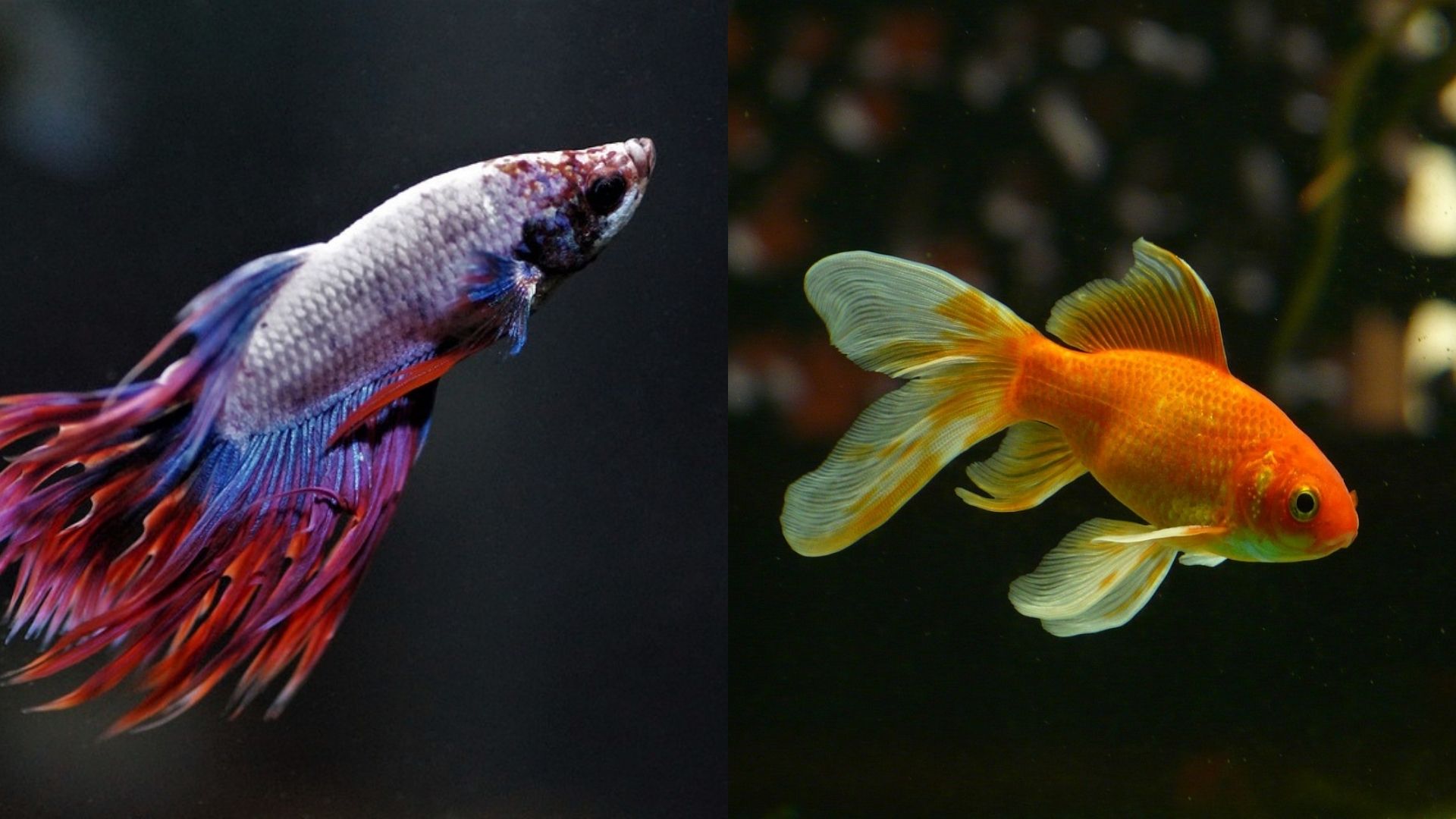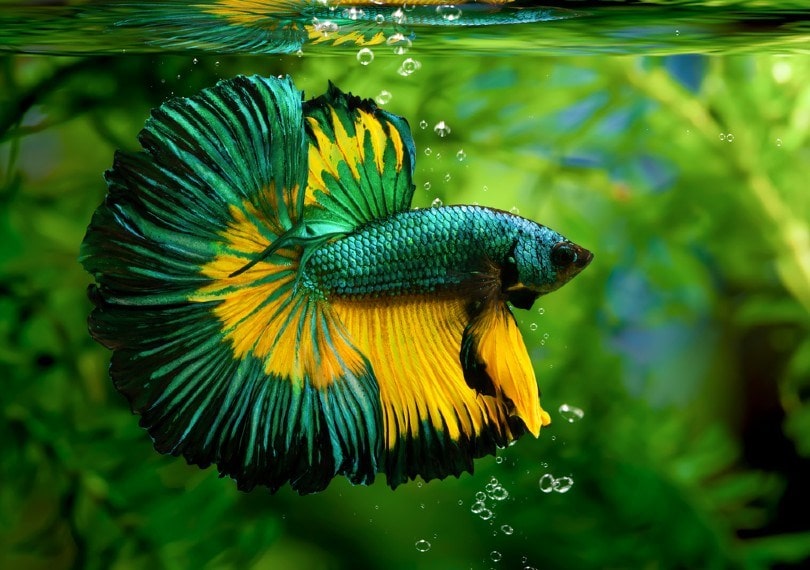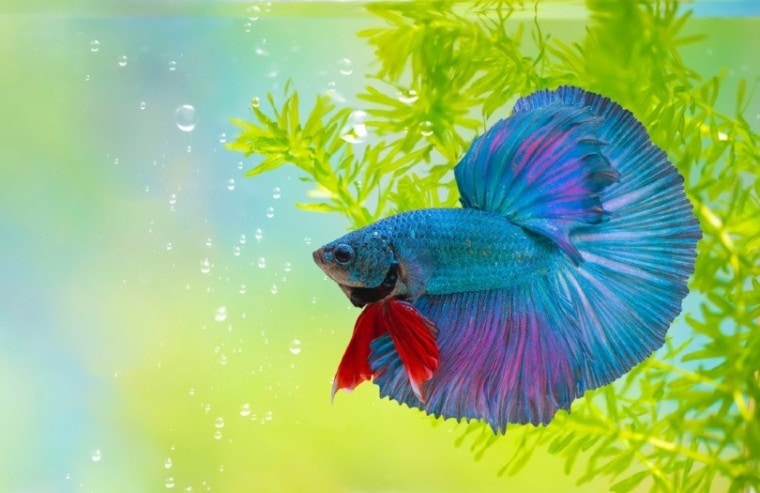
When it comes to our betta fish, we all want to show them love however we can. One of the easiest ways we find to do this is through food and treats. However, overfeeding your betta fish or feeding the wrong kinds of foods can lead to health problems and water quality issues.
If you’ve wondered what you should be feeding your betta fish and how often they need to be fed, keep reading for everything you need to know about feeding your betta fish!
Betta Fish Feeding Chart
| Day of the Week | Quantity & Types of Food |
| Monday | Fasting |
| Tuesday | 2–3 pieces of live, frozen, or freeze-dried food 1–2 times a day |
| Wednesday | 2–3 pieces betta pellets 1–2 times a day |
| Thursday | 2–3 pieces betta pellets 1–2 times a day |
| Friday | 2–3 pieces of live, frozen, or freeze-dried food 1–2 times a day |
| Saturday | 2–3 pieces betta pellets 1–2 times a day |
| Sunday | 2–3 pieces betta pellets or pinch of flakes 1–2 times a day |
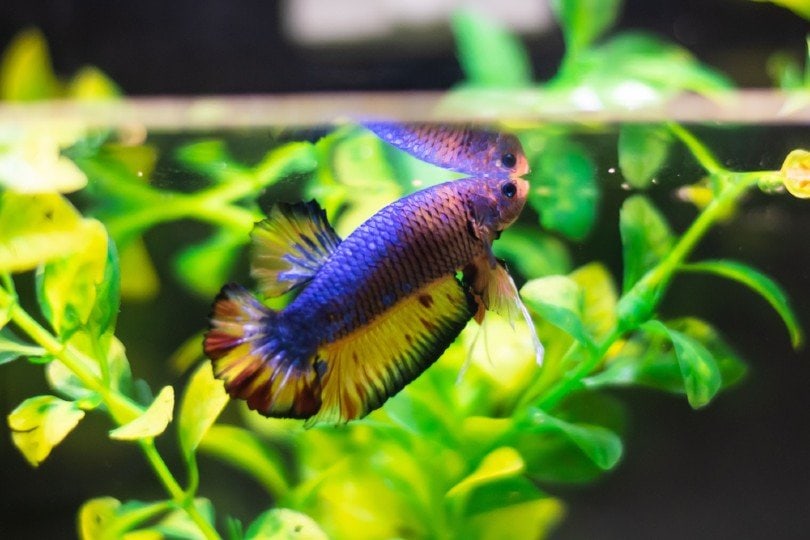
How Often to Feed a Betta Fish
Since betta fish do not graze as omnivorous and herbivorous fish do, they should be fed daily at a minimum. Ideally, you should feed your betta twice a day, and you can even split the food amount up into three daily feedings if you want to. Your betta needs food to maintain energy and health.
However, it’s important to fast your betta every 1–2 weeks. Fasting helps the gastrointestinal system play catch up with any food that has not been fully digested. This will help prevent constipation in your betta. One day of fasting will be adequate and unless needed to treat a medical condition, you shouldn’t fast your betta two days in a row.
The Dangers of Overfeeding Betta Fish
The biggest danger of overfeeding your betta is the risk of causing constipation. Constipation in bettas can lead to more than stomach discomfort and bloating. It can also lead to swim bladder dysfunction and may even exacerbate other underlying medical conditions by inducing stress. Make sure you are feeding an appropriate amount of food per feeding to your betta and resist the urge to overfeed because they give you puppy dog eyes.
The other big danger with overfeeding is that it runs the risk of fouling the water. Food that your betta does not eat will begin to rot, causing ammonia to build up in the tank. It will also allow for bacteria growth, which will create water cloudiness and reduce the dissolved oxygen within the water.
What to Feed a Betta Fish
Feeding your betta fish the right foods will maintain its health, improve its color, elongate its life, and make it an overall happier fish. Bettas are carnivores, which means their natural diet consists primarily of eating small animals, like insects and snails. Luckily, there are plenty of products on the market to ensure your betta gets a healthy, hearty diet.
Options for Feeding Your Betta:
Related Read: Do Betta Fish Have Teeth And Can They Bite?
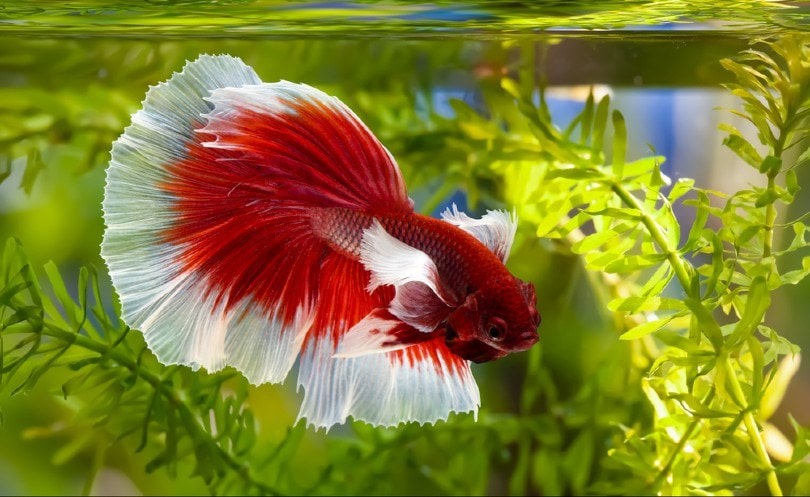
What’s the Best Food for Your Betta?
The most nutritionally sound food option for bettas is live foods, but this isn’t a practical option for most people. Frozen foods are nutritionally second to live foods, but storage and portioning can become an issue. Freeze-dried foods tend to cause constipation due to their lack of moisture and some may have lost the nutritional profile of the live animal. For most people, pellets are the most cost-effective option for nutrient-dense foods that don’t break the bank. Flakes are a good treat on occasion, but most flake foods do not have the necessary nutritional profile needed for daily feedings.
Foods Bettas Cannot Eat:
Why Won’t My Betta Fish Eat?
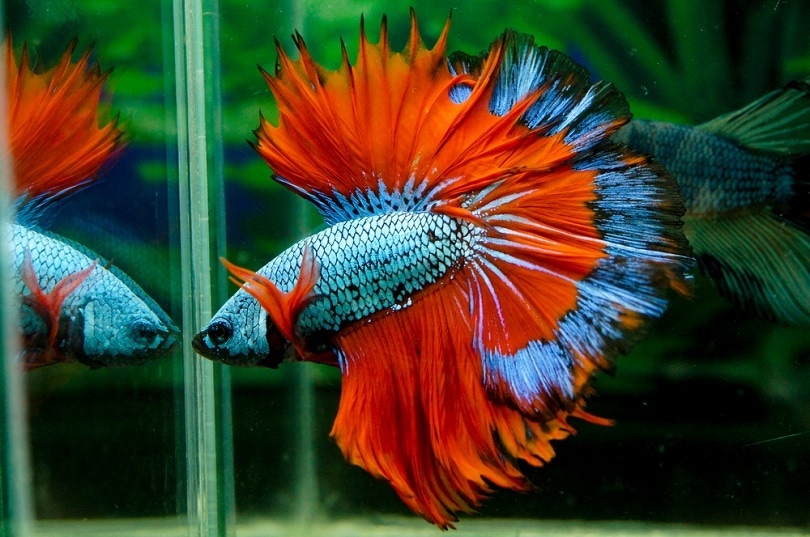
If your betta fish is bloated or constipated, it may choose to skip one or multiple meals.
Medical conditions like swim bladder disease and dropsy can also lead to inappetence, so if your betta starts skipping meals, make sure you are closely monitoring for symptoms of an underlying problem.
The most common reason that a betta fish stops eating is water quality issues. If your tank isn’t cycled or you aren’t performing routine water changes, then your water quality will suffer. The same goes for overfeeding and allowing food to rot in the tank. Bettas are the happiest and healthiest with clean, clear water.
Conclusion
Feeding your betta fish the right diet is easy to do but may require you to read labels and monitor how much and how often you’re feeding. Aim for a dietary-based food that has around 40% protein and has few fillers, like soy and cornmeal.
Feeding your betta a variety of foods will provide enrichment and stimulation to your betta. If you are able, feed your betta live food every now and then. They will enjoy putting their natural hunting abilities to work!
Featured Image Credit: Buddy BIGPhotographer, Shutterstock



